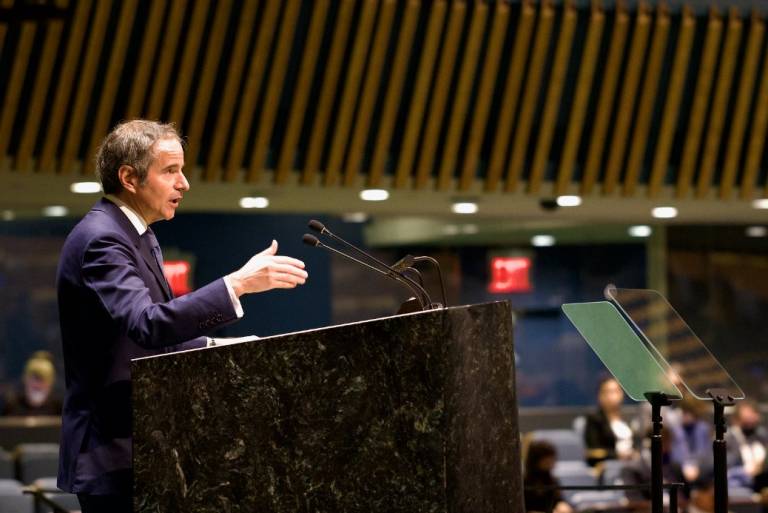Student blog by Václav Štekl*
The Covid-19 pandemic has caused an unprecedented division of society on the topic of human health and the rights of individuals clashing with governmental attempts to preserve citizens’ health and safety. As the division is getting deeper, it is already clear that we, as a society, cannot ask “if”, but rather “how” we have to address these issues?
As Stephan & Chenoweth (2008) argue in their work, civil resistance can be successfully used by the public as a tool to influence the social, economic or political environment of the society. Civil resistance can include protests, boycotts, and various forms of non-cooperation, which can also be called non-violent actions. This post will predominantly focus on the non-violent public actions used to influence the political environment. In history, we can find many examples of the use of non-violent actions by the citizens to affect the social and political environment. One illustrative example could be the peaceful student demonstrations of the 1989‘s Velvet Revolution in former Czechoslovakia, which was one of the contributing factors leading to the dissolution of the communist regime in the country (Vanek & Mücke, 2016).
However, even though quite often the non-violent actions used by the public against their government are generally viewed in positive light when the people “fight” for democracy and their freedoms, it does not have to be the case every time. In some cases, the civil resistance of one or several citizen’s groups can raise many controversies and divide the society. A prime example of this controversial type of civil resistance is the Zlatý Špendlík (The Golden Pin) initiative put forth by the Czech singer Daniel Landa.
The initiative encourages its members to send legal requests for information to Regional Hygiene Stations to overwhelm and effectively disable them. The campaign is driven by a disagreement with current Covid-19 restrictions that require the citizens to present a valid Covid-pass when entering restaurants or bars, which are supposed to be enforced by the staff of the restaurants and controlled by the Regional Hygiene Stations. (Zlatý Špendlík, 2021.) The Czech Ministry of Health has reacted to this initiative by issuing an official criminal complaint with suspicion on acts of sabotage to the Police of the Czech Republic (Czech News Agency, 2021).
Now, difficult legal and societal dilemmas arise, as the initiative is requesting information from the Regional Hygiene Stations in a way that is consistent with citizens’ right to access information on how public institutions operate. This is codified in the Czech law, but the Ministry of Health argues that the law is being abused with malicious intent. While the legal aspect of this dilemma must be decided by a court, the broader societal dilemma remains: Where is the thin blue line that separates righteous civil resistance against oppression from the unlawful abuse of legal loopholes and undermining of public institutions that serve to protect the population? And who should be responsible for defining this?
This issue is extremely complex due to its subjectivity. A simple answer of either “yes” or “no” is virtually impossible as the opinions on this topic take a spectrum as wide as the entire society. At the same time, some decision will have to be made as we cannot afford to become paralyzed in the middle of a worldwide crisis that threatens human lives. As we are all members of human society, every one of us should spare at least some time to give a thought to issues concerning the safety and security of our society. In the end, these kinds of battles are better won with words and ideas, rather than swords and violence.
*This student blog post has been done as part of the course SAFER.SG.310 Societal Security: Contemporary Challenges in the Masters Degree Programme in Security and Safety Management (SAFER) in fall 2021.
References
Czech News Agency (2021). “Ministerstvo podává trestní oznámení na Landovu iniciativu Zlatý špendlík. Podezírá ji ze sabotáže”. November 12, 2021. IRozhlas.cz. Retrieved November 15, 2021, from https://www.irozhlas.cz/zpravy-domov/ministerstvo-zdravotnictvi-podava-trestni-oznameni-na-policii-podezreni-ze_2111121931_voj.
Stephan, & Chenoweth, E. (2008). “Why Civil Resistance Works: The Strategic Logic of Nonviolent Conflict”. International Security, 33(1), 7–44. https://doi.org/10.1162/isec.2008.33.1.7.
Vanek, M. & Mücke, P. (2016). Velvet Revolutions: An Oral History of Czech Society. Oxford: Oxford University Press.
Zlatý špendlík (2021). Retrieved November 15, 2021, from https://zlatyspendlik.cz/.





